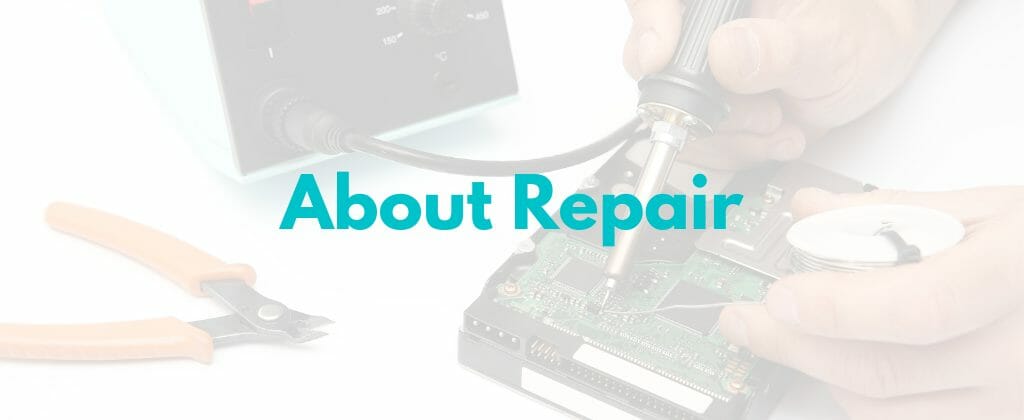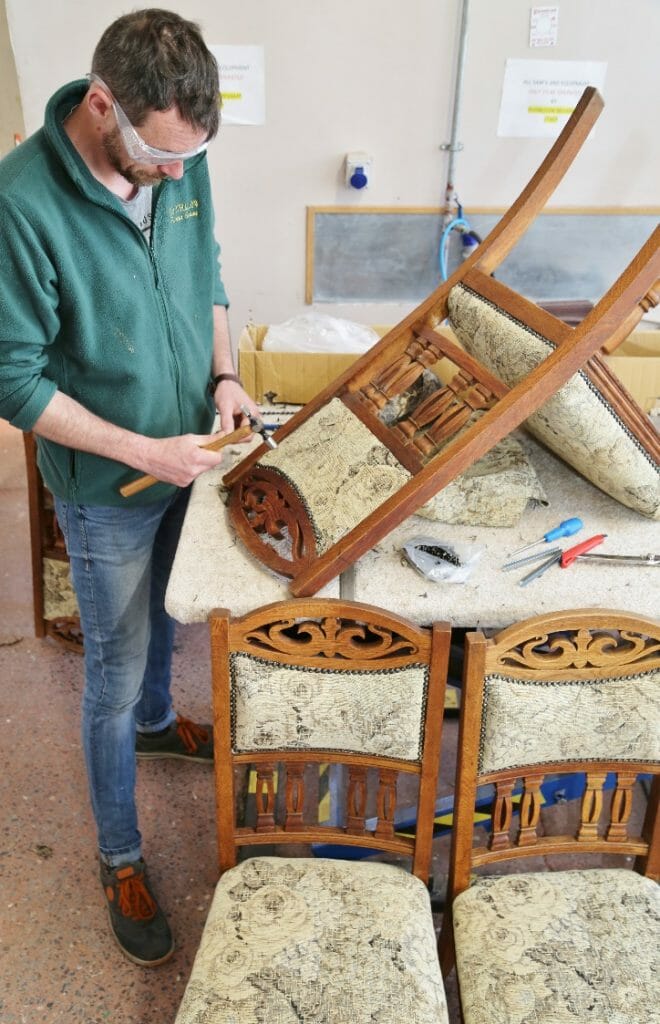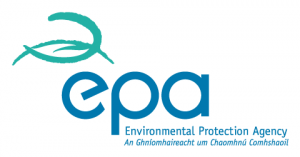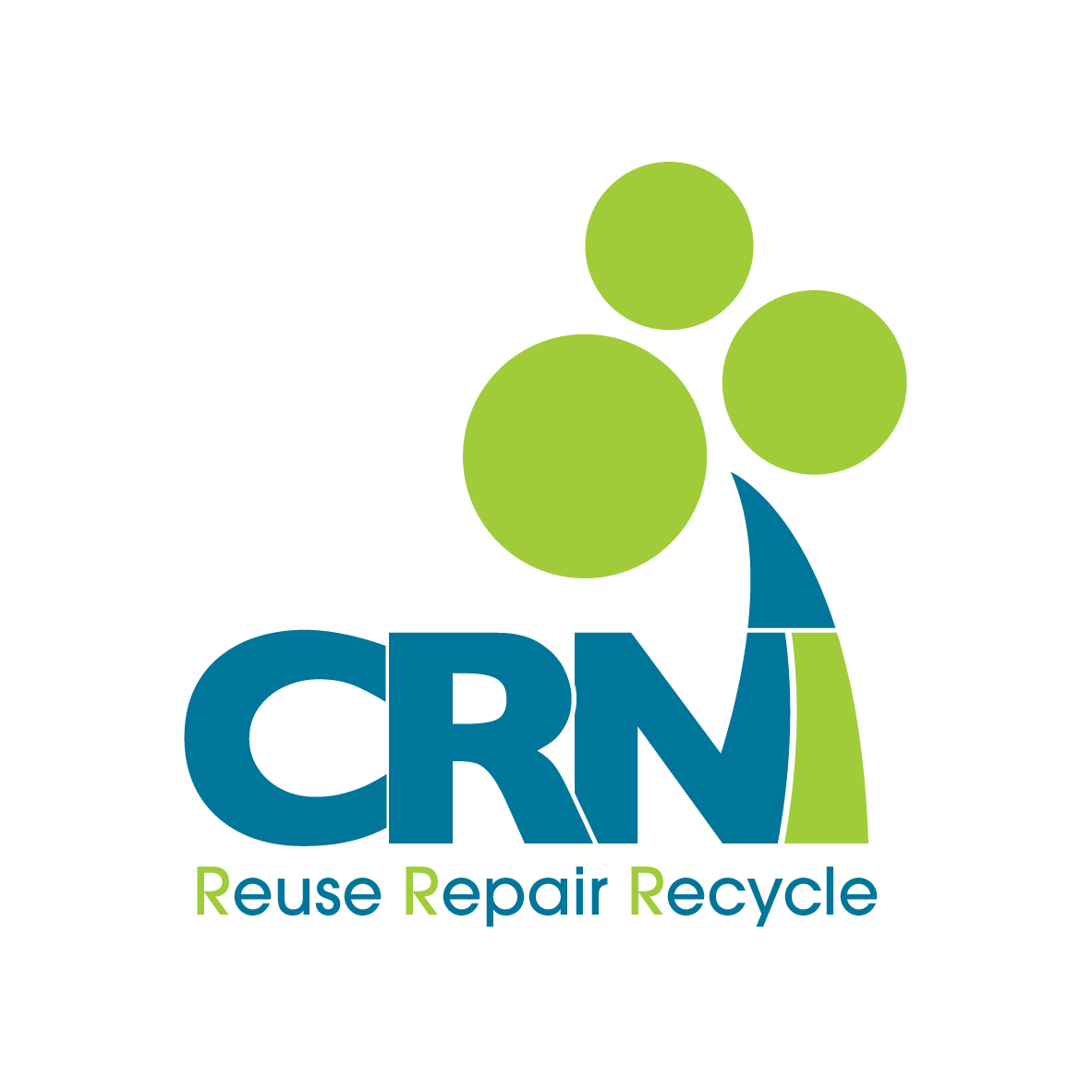
Why Repair
Repair is a key reuse activity that helps products to last for longer. Community repair prevents waste, saves CO2 and mends hearts.
A recent study by Oko-Institut found that repairing and keeping products televisions, smartphones, washing machines and notebooks going for longer could save 3.93 million tonnes of CO2 equivalents (CO2e) per year in Germany alone.


How and Where to Repair
There are lots of repair centres and resources to help you repair your stuff. Many CRNI members offer repair services or courses on how to repair.
The RepairMyStuff directory helps you find local repair businesses anywhere in the country. An excellent blog on maintenance and repair of your everyday goods can also be found on the Living Lightly website here.
You can find out how easy something is to repair before you buy it with ifixit .This site also containes a wealth of information about how to repair things at home.
Repair Cafes are free meeting places that are all about repairing things together. To find out how to set up a repair cafe visit here. You can also find all kinds of tips for repair and maintenance on their website, for smartphones, bicycles, vacuum cleaners, coffee makers, jewelery, lamps and sewing machines.

Your Right to Repair
The Right to Repair is about facilitating repair, ensuring products are designed for repair and supporting repairers of all kinds.
The European Commission adopted repairability requirements on October 1st 2019 affecting TVs, monitors, fridges, freezers, washing machines, washer-dryers, dishwashers and lighting products. These requirements will impact way our products are manufactured and used from 2021 through minimum repairability requirements aimed at extending their lifetime.
But more still needs to be done. For the RREUSE response to these developments read here.
The Sharepair Interreg project is exploring ways to decrease WEEE from consumer products by scaling up citizen repair initiatives through the use of digital tools. Find out more here.
Repairability Index, France
Since January 1st 2021, France is the first country in Europe to have implemented a repairability index on 5 categories of electronic devices. While this index is a key milestone for the Right to Repair in Europe, it isn’t without limitations. From how easy it is to obtain a good grade to self-declared scores by manufacturers and no sanctions until 2022, it comes with challenges that are important to acknowledge and discuss.
This webinar by Right to Repair covers the French repairability index.
Sign up to our quarterly newsletter for more information on reuse and recycling and be part of Ireland’s only reuse and recycling network. For information about our privacy practices, see here.
Our funders

EPA Circular Economy Programme
CRNI supports its members and works to mainstream reuse thanks to core funding provided by the EPA under the Circular Economy Programme.
For more information about the programme see here.
Project Funding

Green + Social Virtual Trade Fair
CRNI’s Green + Social Virtual Trade Fair is funded by Ireland’s Regional Waste Management Plan Offices. This innovative virtual platform is open 24/7 and gives visitors the opportunity to explore green and social procurement opportunities provided by reuse, repair and recycling social enterprises and community-based organisations across Ireland.
Access the Green + Social Virtual Trade Fair here.

CRNI is the all island representative body for community based reuse, recycling and waste prevention organisations. We are funded by the EPA under the National Waste Prevention Programme and through membership contributions. CRNI is a proud member of the European RREUSE network.
Company Limited by Guarantee. Registered in Ireland No. 493039
Registered Charity No. 20077259
CHY No.19637
Latest Posts
- Embracing the Circular Economy in Ireland: The Role of Social Enterprises June 20, 2024
- We’re excited to introduce our new CRNI team! June 7, 2024
- We’re hiring! Executive Director & Network Manager April 9, 2024
- Gift an experience or shop preloved while supporting community causes with CRNI members December 5, 2023
Useful links
Contact Us
Community Resources Network CLG
Registered office:
The Tara Building11-15 Tara Street
Dublin 2
D02 RY83
Phone: +353 87 173 5184
Email: [email protected]
© Community Resources Network Ireland. All Rights Reserved.